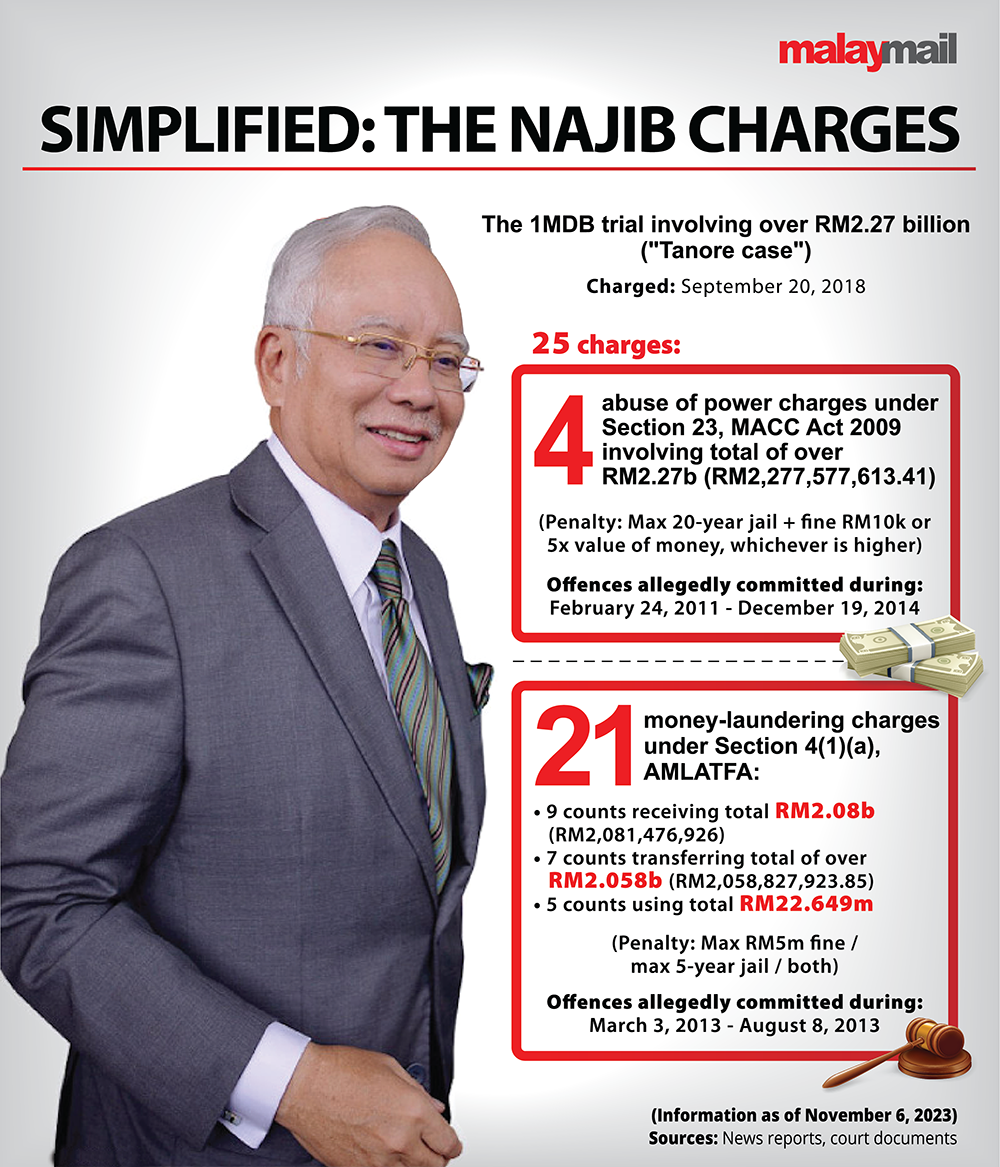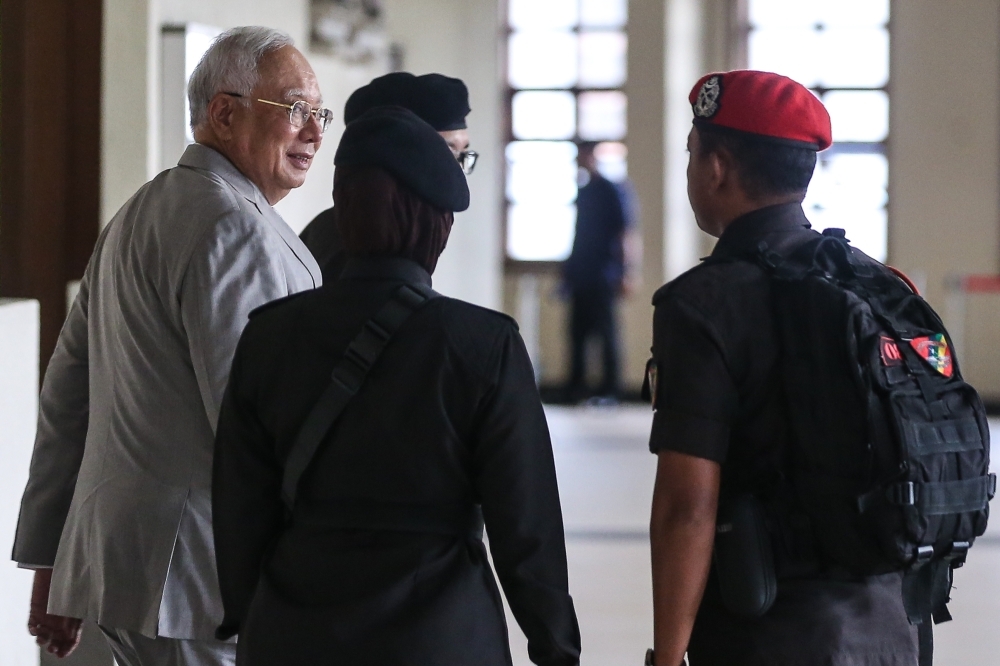PUTRAJAYA, Jan 8 — Datuk Seri Najib Razak today confirmed in court that he had the final say as the prime minister for national policies, but stressed that it was not a “one-man show” as he would still need the Cabinet’s agreement.
Najib said this while testifying as his own defence witness in his power abuse and money laundering trial over 1Malaysia Development Berhad’s (1MDB) funds, which were alleged to have entered his personal bank accounts.
Today was his 12th day testifying, and it was finally the prosecution’s turn to ask him questions at the cross-examination stage.
Najib responded to deputy public prosecutor Ahmad Akram Gharib’s suggestion that he as the prime minister would have to be very cautious and very meticulous in considering everything before introducing new policies such as the New Economic Model (NEM).
Najib then explained that he would need a good team to work on policy ideas first, saying: “As prime minister, you make the final call, yes, that’s true. But before you make the final call, you have to get the right inputs from the people that you appoint.”
Najib said he could not make decisions in a vacuum “based on whims and fancies”, saying that there must first be a thorough discussion and evaluation to look at the options available first before the final call is made.
“When you make the final call, as prime minister you have to get the Cabinet involved, so although I was the PM, it was a collective decision of the Cabinet. The Cabinet was totally onboard,” he said.
Najib added that there were times when the Cabinet disagreed with his proposals, and that he cannot push through something which the Cabinet has not agreed to.
Akram then suggested that Najib would need to be very well-informed before he makes a decision as the “final decision-maker”, which the latter then agreed to.
“Yes, yes, yes. I’d just like to say it’s not a one-man show, although you are the prime minister, but you depend on a lot of people for support.
“And I think that’s the key, if you have the right kind of people supporting you, then the decision you make will be a correct one,” Najib said.
Najib also agreed that he as the then finance minister was the one who made the “final call” for Malaysia’s fiscal policies such as government spending and revenue, but said he did so with the help of the Finance Ministry, the Economic Planning Unit and Bank Negara Malaysia.
As for whether he had always been well-equipped to make informed decisions after careful consideration in his government roles, Najib said it all depended on the quality of the advice given to him and the quality of the people that works with him.
When asked if he is not easily swayed by external pressures, Najib replied: “I try to do the right thing but there is one thing I learnt, there are always consequences to whatever you decide.”
As someone who has held many important positions including as ministers and prime minister, Najib agreed that he was generally highly skilled at distinguishing or knowing what is true or false.
But he said there were exceptions to him getting things right, noting: “Generally, but in life, the government cannot get 100 per cent right. Generally, you should get — vast majority — but at times when based on the facts, or maybe when you assess facts wrongly.”
“Ya, generally, but sometimes when it’s not presented in a proper way or correct way or you have been misinformed, you can make mistakes,” he said when responding to the suggestion that he is a person who would know what is the “truth”.
Najib also agreed that he makes decisions with full awareness of the consequences, but said there could be times when he “miscalculated” the impact of certain decisions, such as the political backlash for his administration’s introduction of the Goods and Services Tax (GST) being worse than expected.
In response to the suggestion that he is not a “country bumpkin” given the education, experience and key government roles he had held, Najib merely replied: “A country bumpkin shouldn’t be a prime minister.”
Akram then asked: “Based on the background of your education, your extensive experience, and the level of expertise that you have had until you were made the number one leader of the country, it will be extremely difficult for someone to mislead you unless you are not intelligent?”
Najib disagreed with this suggestion that it would be difficult for him to be misled.
Najib’s 1MDB trial before judge Datuk Collin Lawrence Sequerah resumes tomorrow morning.





















